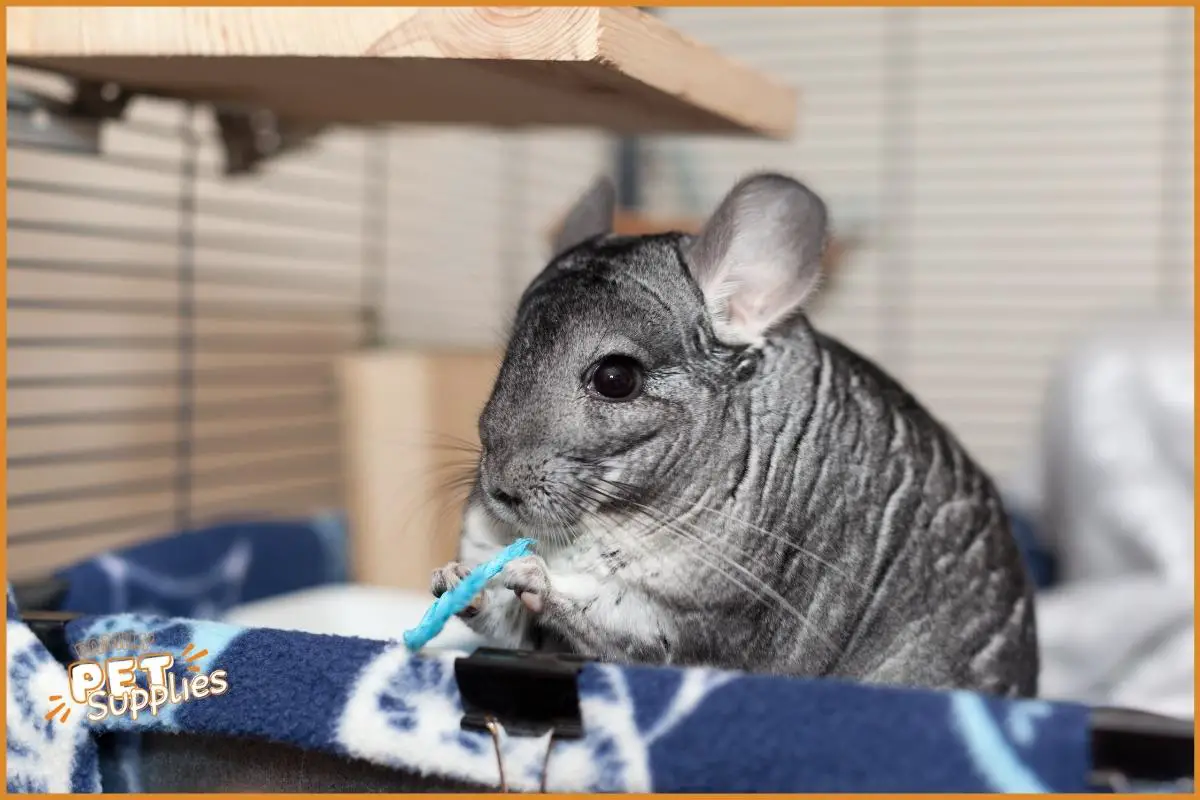A chinchilla’s bite can hurt, depending on the force. Their teeth are designed to gnaw on tough materials. While most nips might be gentle warnings, a stronger bite can cause discomfort. Understanding their behavior and handling them correctly reduces the risk.

Key Takeaways
- Chinchillas may bite as a form of communication.
- Proper chinchilla training and bonding are essential to minimize biting.
- Providing appropriate chew toys and a stimulating environment can prevent biting incidents.
- Understanding chinchilla body language and stress prevention helps prevent biting incidents.
Chinchillas’ Biting Behavior
When handling chinchillas, understanding their biting behavior is crucial to avoid potential discomfort. Chinchillas may bite as a form of communication, whether it be a gentle warning or a more forceful bite. It’s important to remember that chinchillas have teeth designed for gnawing on tough materials, so their bites can hurt depending on the force.
To minimize the risk of being bitten, proper chinchilla training and bonding are essential. By spending time with your chinchilla and gradually building trust, you can develop a strong bond and minimize the chances of aggressive behavior. Additionally, providing appropriate chew toys and ensuring a comfortable and stimulating environment can help prevent biting incidents.
Factors Affecting the Severity of Bites
To understand the severity of chinchilla bites, consider various factors that influence the force of their bites. One of the main causes of chinchilla bites is fear or aggression. When a chinchilla feels threatened, it may bite as a way to protect itself.
Other factors that can affect the severity of bites include the chinchilla’s age and temperament. Younger chinchillas may be more prone to biting as they’re still learning proper socialization skills. Additionally, some chinchillas may have a more aggressive nature than others, making them more likely to deliver a stronger bite.
It’s important to manage chinchilla aggression by providing a secure and comfortable environment, handling them gently, and avoiding any sudden movements or loud noises that may startle them. By understanding these factors and taking proper precautions, you can minimize the risk of getting bitten and reduce the severity of any bites that may occur.
Understanding Chinchilla Body Language
To understand a chinchilla’s body language, observe their posture and facial expressions. This is important because it allows you to gauge their mood and level of comfort.
Chinchillas are social animals, so socialization is crucial for their well-being. By spending time with them and providing opportunities for interaction, you can help them feel more at ease and reduce the likelihood of stress-related behaviors.
It’s also important to recognize signs of stress in chinchillas, such as excessive grooming, teeth grinding, or hiding. These behaviors indicate that your chinchilla may be feeling overwhelmed or anxious.
Tips for Handling Chinchillas Safely
To handle chinchillas safely, it’s important to be gentle and respectful of their delicate nature. When picking up a chinchilla, make sure to support their body with both hands, and avoid squeezing or applying excessive pressure.
It’s best to approach them calmly and speak softly to reassure them. Avoid sudden movements or loud noises that may startle them. If a chinchilla becomes agitated or tries to bite, it’s important not to yell or punish them, as this can further stress them out.
Instead, gently place them back in their cage and give them some time to calm down. Regularly interacting with your chinchilla and slowly gaining their trust will help prevent bites and ensure a positive bonding experience.
Preventing Chinchilla Bites
When handling chinchillas, it’s important to be mindful of their potential to bite and take steps to prevent it. There are several chinchilla bite prevention techniques that you can implement to minimize the risk of being bitten.
Firstly, it’s crucial to handle your chinchilla gently and with care. Avoid sudden movements or loud noises that may startle them and cause them to bite.
Additionally, it’s recommended to train your chinchilla to avoid biting. This can be done by offering treats as rewards for good behavior and providing proper socialization. By spending time with your chinchilla and gradually introducing them to different experiences, you can help them become more comfortable and less likely to bite.
Treating Chinchilla Bite Wounds
Treating chinchilla bite wounds involves cleaning the affected area and applying an antiseptic solution to prevent infection.
If you’ve been bitten by a chinchilla, it’s important to address the wound promptly. Start by washing your hands thoroughly with soap and warm water to prevent any bacteria from entering the wound.
Then, gently clean the bite with mild soap and water, being careful not to scrub too hard. After rinsing the area, apply an antiseptic solution, such as hydrogen peroxide or povidone-iodine, using a cotton ball or swab. This will help kill any bacteria and reduce the risk of infection.
Remember to monitor the wound for any signs of infection, such as redness, swelling, or pus, and seek medical attention if necessary. Proper first aid can help promote healing and prevent complications.
Seeking Professional Help for Aggressive Chinchillas
If you’re dealing with an aggressive chinchilla, it’s important to seek professional help to ensure the safety of both yourself and the chinchilla. Aggressive behavior in chinchillas can be a sign of underlying issues that need to be addressed by a qualified behaviorist.
These experts have the knowledge and experience to assess the situation and provide guidance on how to manage and modify your chinchilla’s behavior. Seeking behaviorist advice will help you understand the reasons behind your chinchilla’s aggression and develop a plan to address it effectively.
Additionally, they can teach you chinchilla bite prevention techniques to minimize the risk of injury. Remember, the safety and well-being of both you and your chinchilla should always be a top priority.

